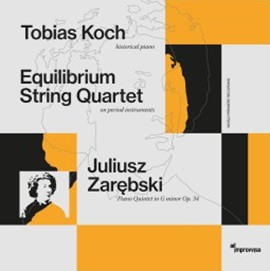Der 27-jährige italienisch-deutsche Dirigent Nicolo Foron hat 2023 mit der Symphonie Fantastique den Donatella Flick-Dirigierwettbewerb des London Symphony Orchestra (LSO) gewonnen. In dieser Liveaufnahme aus der Glocke in Bremen dirigiert er dasselbe Werk mit dem Deutschen Symphonieorchester Berlin.
Er beginnt mit einem hoch intensiven, sehr kontrastreichen und immens farbigen, aber vor allem formidabel transparenten und spannungsvollen ersten Satz. So viel Klangerzeugung und so viel dunkel-kraftvolle Grundierung hat man darin selten gehört.
Eine ähnliche Klangdichte prägt auch den zweiten Satz, Un bal, ohne jedoch den Schwung und die Eleganz zu beeinträchtigen. Der Klangrausch ist enorm!
Sehr schön erklingt auch der pastorale dritte Satz, Scène aux champs. Die Musik wird ungemein stimmungsvoll, und immer wieder überraschen uns Texturen, die ganz apart sind. Kraft- und klangvoll folgen der Gang zum Schafott und der schaurig wirkungsvoll dramatisierte Hexensabbat.
Das Deutsche Symphonieorchester Berlin zeigt sich von seiner besten Seite. Es ist dies also eine spannende und rundum überzeugende Aufnahme. Allerdings ist Forons Interpretation fast das Gegenteil von dem, was Mariss Jansons getan hat, der eher einen Traum als einen Alptraum darstellte.
Und Foron dirigiert den ‘Trip’ auch nicht so ekstatisch, so akzentreich als Leonard Bernstein, der diese kranke Opium-getränkte Musik total ausgeflippt dargestellt hat.
Etwas falsch am Platz folgt dann D’un soir triste der 1918 im Alter von gerade einmal 24 Jahren verstorbenen Lili Boulanger. Nicht, dass die Interpretation nicht gut wäre – sie ist sogar sehr expressiv – , aber das Stück ist nach den der Berlioz-Symphonie zu realistisch in der Zeichnung seiner bedrückten Trauer, als dass man das so ohne Weiteres hinnehmen würde.
Twenty-seven-year-old Italian-German conductor Nicolò Foron won the 2023 Donatella Flick Conducting Competition with the London Symphony Orchestra (LSO) with his performance of Symphonie Fantastique. In this live recording from the Glocke in Bremen, he conducts the same piece with the Deutsches Symphonie-Orchester Berlin.
He begins with an intense, contrasting, and colorful first movement that is, above all, transparent and suspenseful. One rarely hears so much sound or such a dark, powerful bass foundation in this movement.
A similar density of sound characterizes the second movement, Un bal, without detracting from its momentum and elegance. The sound is intoxicating!
The pastoral third movement, Scène aux champs, sounds beautiful as well. The music becomes incredibly atmospheric, and distinctive textures repeatedly surprise us. Gang zum Schafott and the eerily effective dramatization of Hexensabbat follow, showcasing power and sonority.
The German Symphony Orchestra Berlin is at its best. This is an exciting and thoroughly convincing recording. However, Foron’s interpretation is almost the opposite of Mariss Jansons’, which was more of a dream than a nightmare.
Foron does not conduct the « trip » as ecstatically or emphatically as Leonard Bernstein, who presented this sick, opium-soaked music in a totally freaked-out way.
D’un soir triste by Lili Boulanger, who died in 1918 at the age of 24, is somewhat out of place after the Fantastique. It’s not that the interpretation is bad; it’s actually very expressive. But after the Berlioz symphony, the piece’s realistic depiction of oppressive grief is hard to accept.























